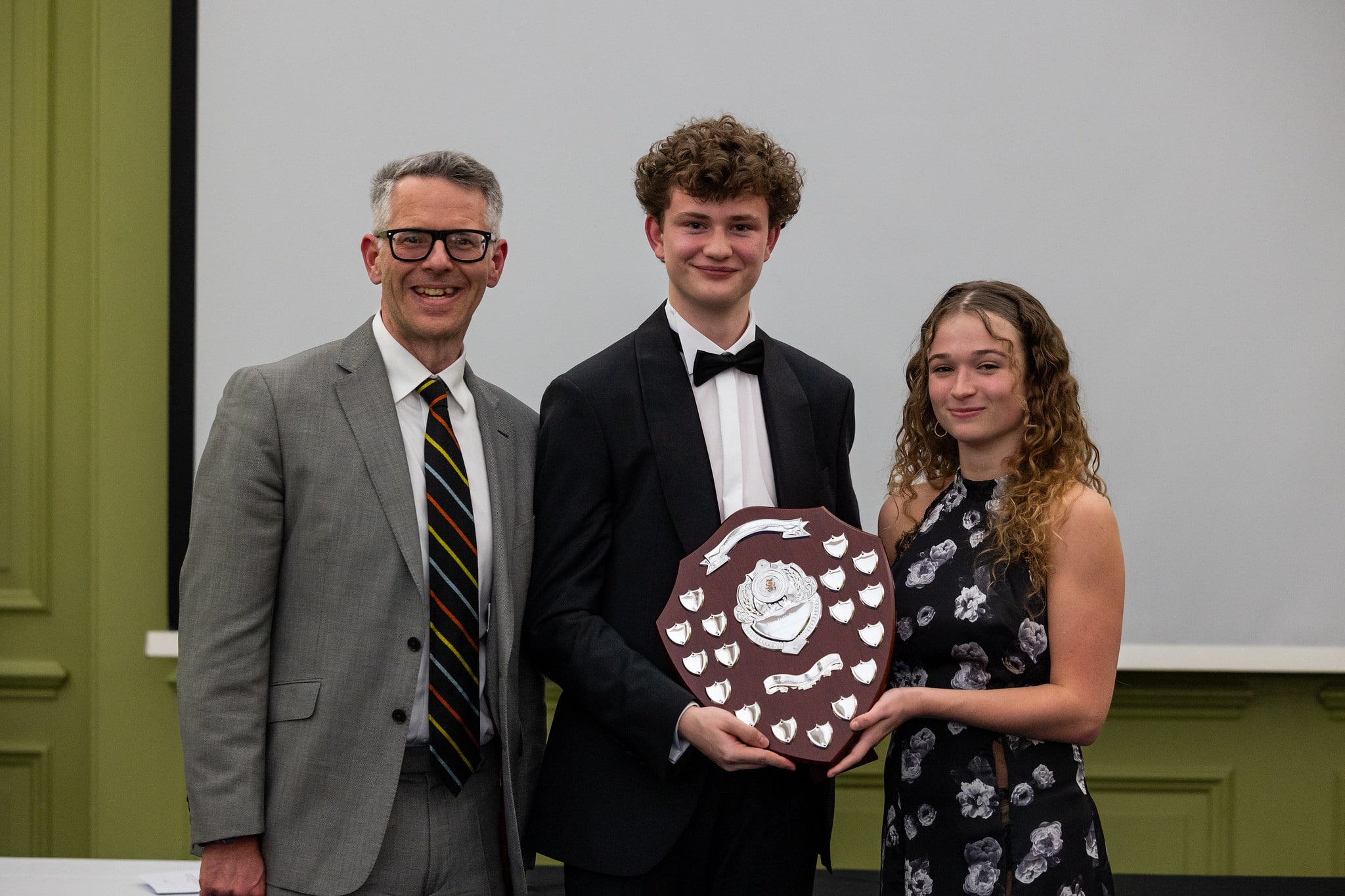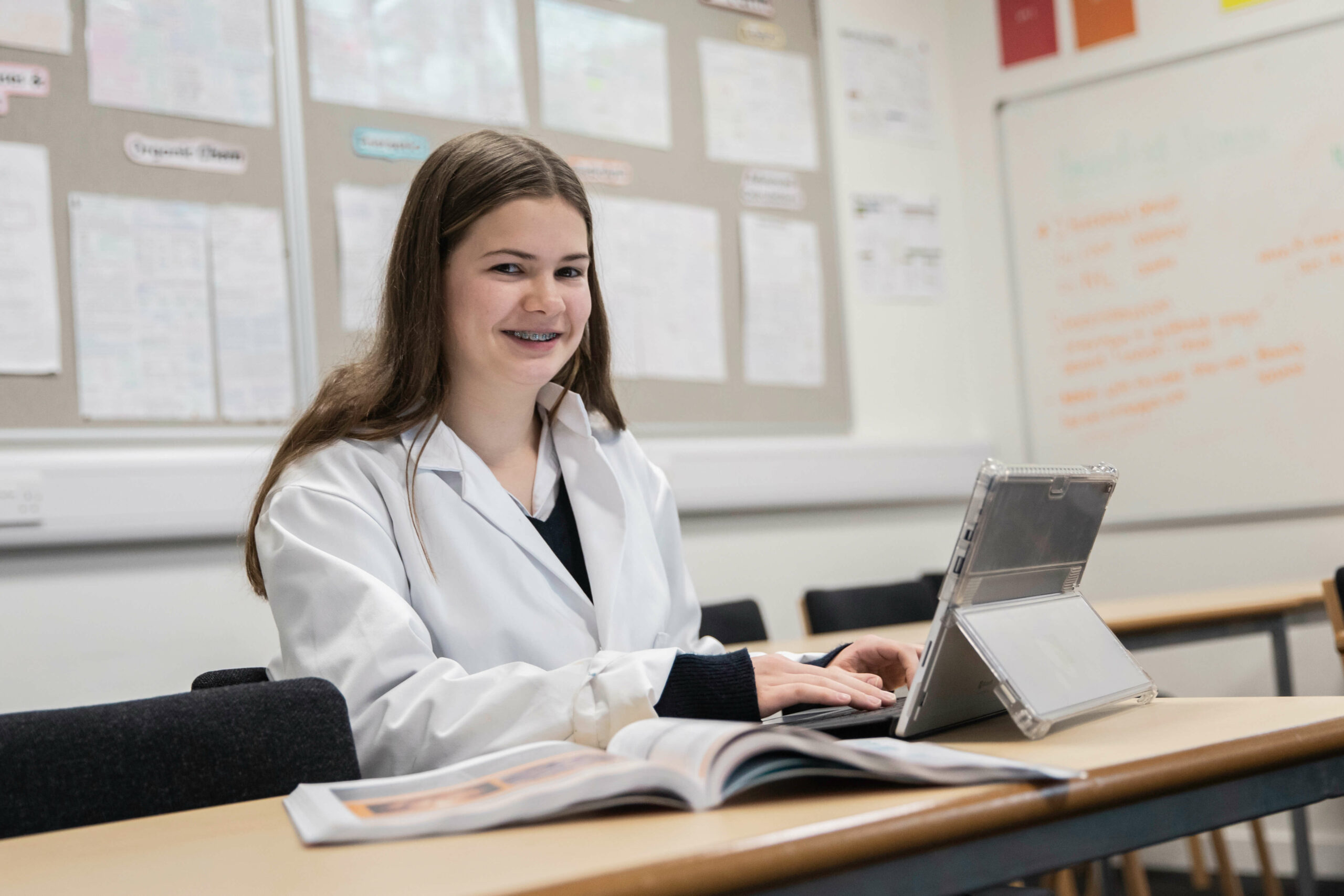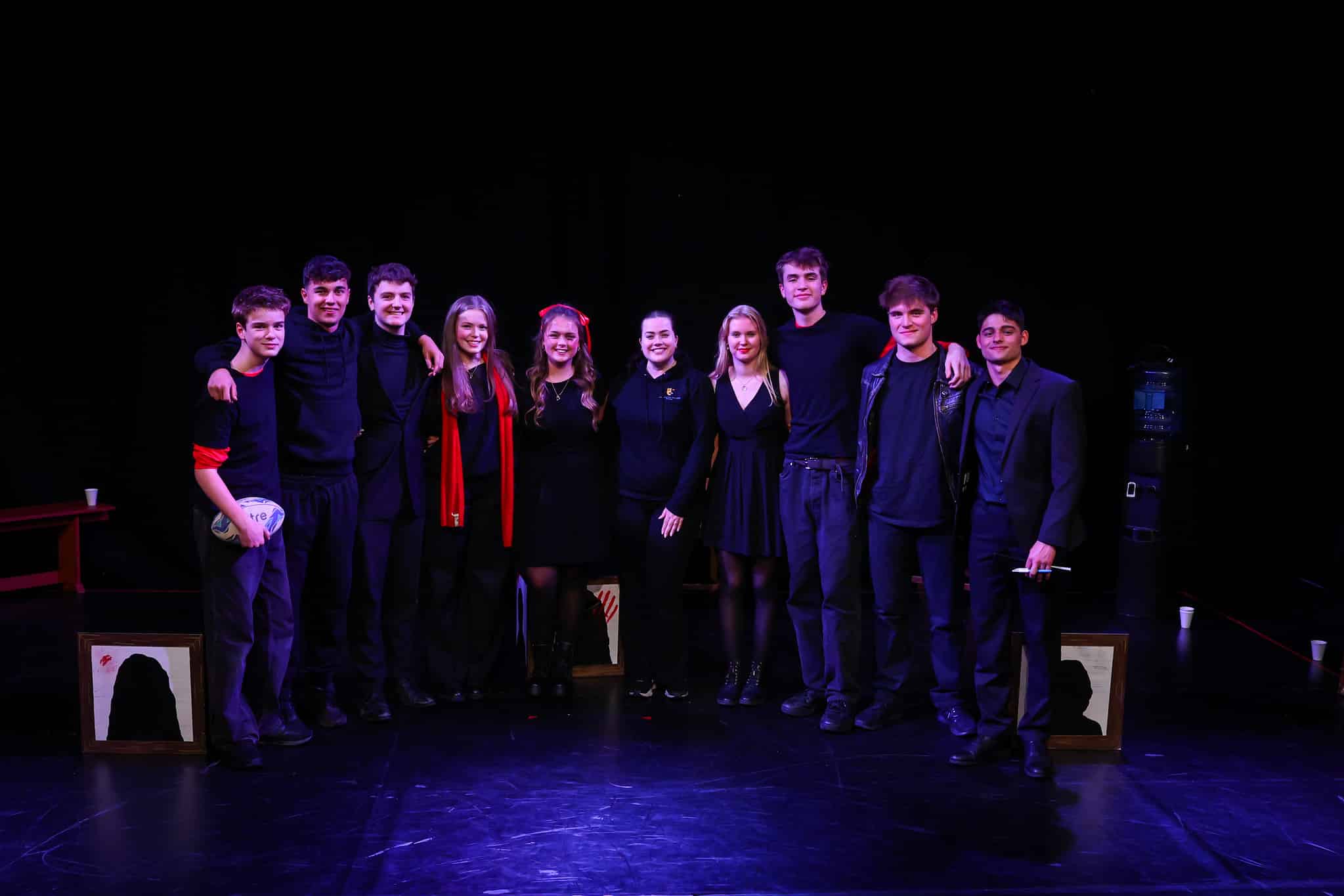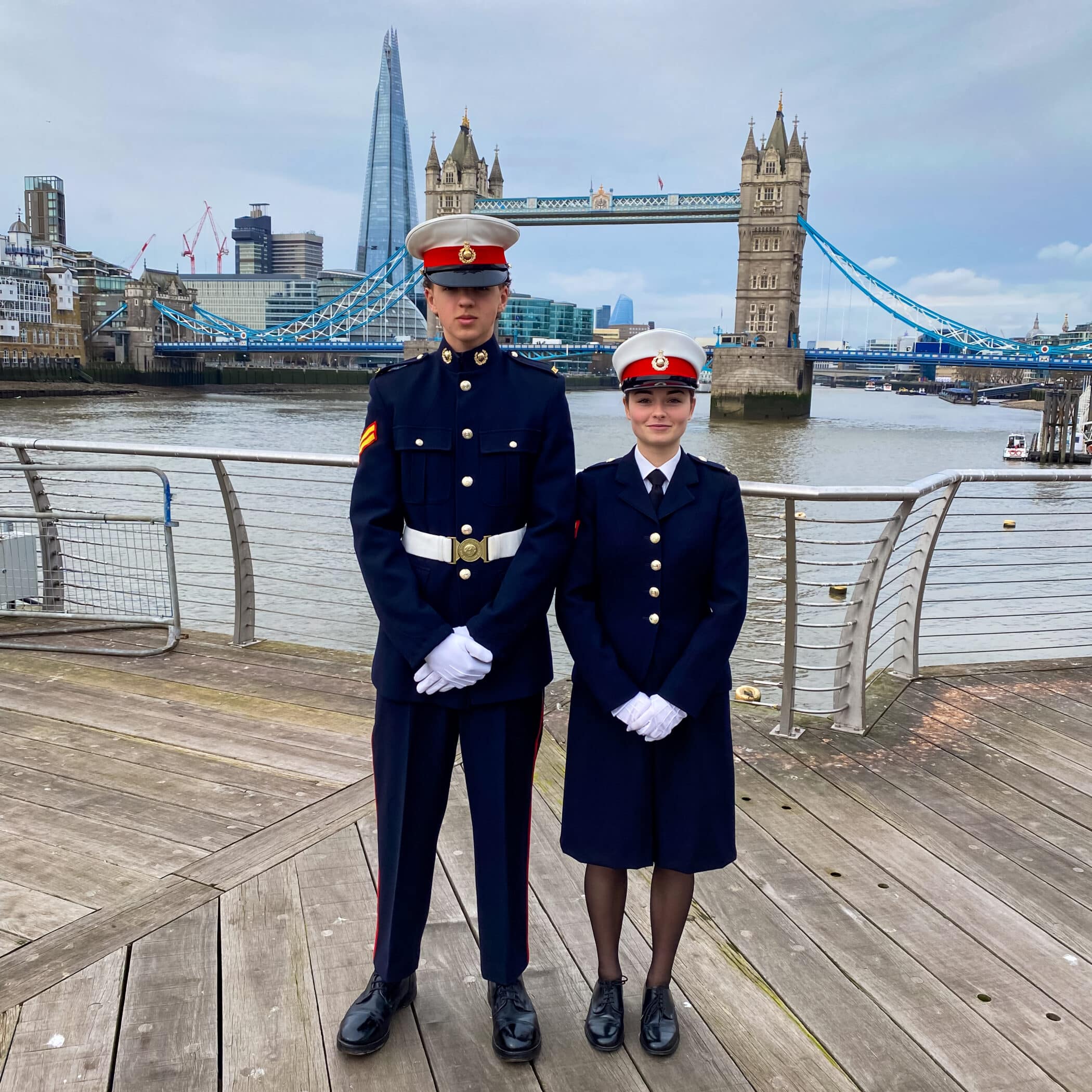
‘Science is about looking towards the future and long-term solutions.’
Third Form student, Poppy Hinds, took up the challenge of writing a 500-word essay for the Rutherford Appleton Laboratory Science Prize. Her essay, ‘Why I love Science’, impressed the judges and Poppy was one of 15 students in the country to reach the finals. Poppy is part of the first cohort of students to follow Wellington’s reformed Third Form Science curriculum. Students study Biology, Chemistry and Physics, all of which are taught by subject specialists, but students are given the choice of one of three stands (‘Standing on the shoulders of giants – a history of science’, ‘Intelligent design – artificial and natural models of systems’, or ‘Staying Alive – what we need and how we do it’). All cover the same content, but within different contexts and, crucially, emphasis is placed on creatively exploring the links between.
Miranda Patterson, Director of Science, Technology and Engineering at Wellington, is committed to this cross-curricular approach: “At the heart of each theme are a number of intellectually rigorous problems that students work towards answering. Our Third Form students have to be creative, they have to show originality of thought in their problem solving, and develop a thorough grounding in numeracy, scientific literacy and the scientific method in order to progress”.
Poppy Hinds has clearly been inspired by her Science studies this year. She has kindly agreed to let us publish her essay in full.
Why I Love Science, by Poppy Hinds
From a very young age, I have always questioned the world. Science almost always gave me the answers to my never-ending torrent of queries, and it continues to do so. Having answers to my questions compelled me to want to know more. In short, science fed and continues to feed my curiosity.
Science is for everybody, no matter who you are or where you come from. If you ask questions, more will sprout from that until you reach an answer. Think of smallpox, a farmer began to question why his milkmaids were not contracting the disease. Thanks to his questions and resulting research, we now have the cure to smallpox. That is what is amazing – questions don’t only satisfy one’s needs, they can end up having global effects that could change the course of history. The unlimited opportunities for discovery can change the lives of the entire 7.7-billion-person population.
Every subject except Science is limited. History teaches us only of the past, Politics and other such subjects teach us about the present, and languages come up with new subject-specific vocab for the future. But Science focuses on all three – the breakthroughs that occurred in the past e.g. Fleming’s discovery of the antimicrobial properties of Penicillium are still key to the development of medicines today. The research that takes place nowadays influences our society, and science is about looking towards the future and long-term solutions. Unlike in maths, where there is usually a definite answer and in philosophy where there is no definite answer, science differs again. You can make a logical hypothesis, yet repeated results can prove very different facts that challenge the original views.
Nowadays, there is a lot of talk about equality and opportunity amongst certain groups of people. One of the things I love most about science is that answers can be explained with varying amounts of detail. For instance, kids can ask ‘Why is the sky blue?’ and get a response they can understand. However, there is obviously a more scholarly explanation. Because of this, I love science as it is accessible to everybody.
However hard one tries to make the prospect of becoming a scientist seem beyond aspiration, that does not erase the fact that all scientists started off as students. As a student myself, it is amazing to think that the future rests on our shoulders. We are the people who will make history, change the lives of others, and we will become those clever scientists in years to come.
Finally, I love science because it is so different from everything else! In science, I can ask questions and through conducting exciting practical experiments have them answered, and all of this is highly beneficial. Whoever said that school is not exciting has never attended a proper science lesson!
Science: the one subject that holds the key to the brains of the human race. It explains itself to anyone who is interested, and it provides answers for those who ask.









